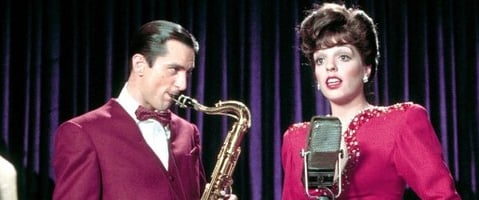Do you remember trying to fit in? You might still be trying now! Our school years most often...
That Thing You Do
Making a point is something we love to do. We want to get our perspective across with clarity and conviction. We want to see our words impact others. There is something validating when that occurs, if we’re honest. Apart from any self-esteem issues, there is satisfaction. And upon that victory, we look at the form we took, in words and actions, and set that as a template to follow.
There is a very popular concept of form follows function in the architecture space. Simply, look at what need there is to fill or to do and then work on the form to meet that objective. This has and can work in other media, too. Take the very controversial movie from the early 1970’s, A Clockwork Orange. Stanley Kubrick wanted to provide a mind journey to challenge a post-modern world. He set up a world where violence and unrest were daily staples. He wanted to shake up the current status quo of the time by presenting an extreme view of the progression of society when left to its own devices. We would seek out harm, not help. We would settle in for torture as a mode of behavior. We would consider life worthless, hence the ability to disrespect it so readily.
The form (the movie) was visually strange and awkward. The camera angles were deliberately off-center at times. The sets and costumes ranged from minimalistic to outlandish. The depiction of classical music against a backdrop of sexual frenzy and violence hurt the senses. Kubrick’s function (to get us to consider a world yet to be) set the course for the medium.
Often, our form bespeaks of the function we are emphasizing, even unintended. If, for example, our person is merely meant to raise high the banner of compliance and rule-following (though important!), the form we take will show that. The stereotypes of a hunched-over, looking down our noses over our glasses, shallow-cheeked pencil pusher come from some level of truth. It resonates because we’ve seen these people before. We have dealt with them, sometimes all too often.
And while there is nothing wrong with the form of administration, played out as a result of our function, have we adopted a perspective of our function that is too small? Rather, what if our function, like Kubrick, is to challenge the status quo of thought? What if we’re meant to push a deeper desire for connectivity amongst our teams? What if we’re meant to challenge success-patterned thinking? What form would we become?
What goes into a person is the fruit he/she will produce, or as a former colleague would tell me, “Garbage in, garbage out.” If my form is garbage, it’s not because that was the goal. It’s because I adopted the function of eating garbage. This is why what you’re doing matters. If I can take stock of what I am being, then I can trace backwards from that form to the function upon which I’ve set my sights.
Center yourself on the function. In other words, the goal for why you do what you’re doing. When architects and designers think through function, they consider how it will be used, how it will be held, how it will be stored, how it will fit in a home/office, how it will improve process and how it will offer support to other functions. From these answers, the form materializes. In very real ways, we can ask ourselves these same questions in our roles to figure out the form that we should take.
That’s a self-check issue. It requires you to be honest with yourself and evaluate your role. You may not like it, but that’s okay. Even Alex in A Clockwork Orange didn’t like himself; I mean, he was morose and deviant. You’re not that awful!
For those visual learners, draw this out. Answer questions about function in word and picture. Then depict the form you need to take to meet those necessities of function. Let that vision board piece motivate and encourage you.
The “form follows function” concept has altered a bit in the world of architecture and design. The same will hold true for people development. But as a standard, it’s a bright spot for grounding and affirming ourselves and others. No violence necessary, Mr. Kubrick, to make our points.




Blog comments